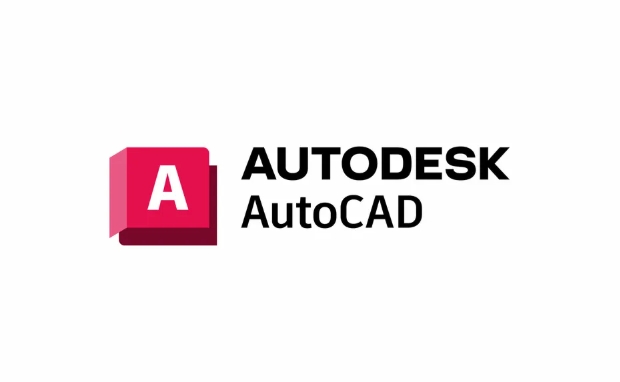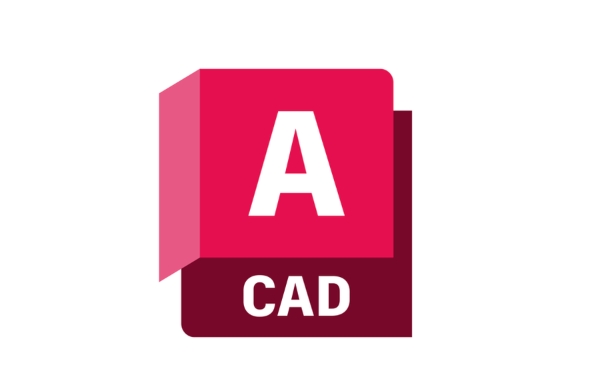Friends who are just beginning to get involved in AutoCAD 3D modeling can start with the following steps: 1. Start practicing with basic geometry (such as cubes, cylinders, spheres), use commands such as BOX, CYLINDER, SPHERE and other commands to build simple models and combine them into complex structures; 2. Master Boolean operations (UNION merge, SUBTRACT cutting, INTERSECT intersection) to create solid models with holes or combined structures; 3. Pay attention to the view and coordinate system (UCS) settings, switch the view angle to understand the structure, and ensure the correct operation direction by adjusting UCS; 4. After completing the modeling, it can be exported to STL, STEP or IGES format for easy printing or sharing, and use SECTIONPLANES to view internal structures or use tools such as Fusion 360 to view. AutoCAD 3D modeling will become clear and efficient as long as you master these core techniques step by step.

Friends who are just beginning to get involved in AutoCAD 3D modeling may feel that the interface is complex and the commands are numerous, and they don’t know where to start. In fact, as long as you master the basic processes and common tools, the modeling process can become clear and efficient.

Start practicing with basic geometry
AutoCAD's 3D modeling does not require complex parts or building structures from the beginning. It is recommended to start practicing with the most basic geometry, such as cubes, cylinders, spheres, etc. These basic shapes are the basis for building more complex models.

- Use the
BOXcommand to quickly create a rectangle -
CYLINDERcan be used to make shaft parts or holes - If you want to make rounded corners or transitions, you can use
SPHEREorTORUS
Pay attention to switching the view direction during operation, such as using the "isometric" viewing angle (isometric), which can better observe the three-dimensional structure. Beginners can try to combine several basic bodies, such as making a cup with handles to train their understanding of the spatial structure.
Learn to combine models with boolean operations
During the modeling process, you often encounter situations where multiple objects need to be merged, cut or intersection, and at this time, you need to use Boolean operations:

-
UNION: Combine two or more entities into one -
SUBTRACT: Subtract another object from one object, often used for hole punching -
INTERSECT: Keep the overlapping parts of two objects
For example, if you want to make a metal plate with holes, you can first draw a rectangle, then draw a cylinder as the position of the hole, and then use SUBTRACT to "dig" the cylinder from the rectangle.
The key to this step is to make sure that the objects participating in the operation are "solids", not surfaces or wireframe models, otherwise an error will be prompted.
Don't ignore the settings of the view and coordinate system
Many novices tend to ignore the adjustment of view and coordinate system (UCS) when modeling, which results in low modeling efficiency and even wrong directions.
- Frequent switching of view angles (such as top view, front view, left view, isometric) helps to understand the model structure
- Use the
VIEWcommand to save common view angles - When drawing on different surfaces, remember to adjust the UCS so that stretching, rotation and other operations will be performed in the direction you want
For example, if you are making a raised structure on a slope, if you do not adjust the UCS, the modeling direction will be incorrect. At this time, you can use UCS command to select the "Object" option to make the coordinate system fit the slope, making the operation much more convenient.
Export and viewing tips
After modeling is completed, you may need to export as STL files for printing, or send them to someone else to view. AutoCAD supports exporting in multiple formats:
- Export STL for 3D printing, note that the unit should be uniform (mm or inches)
- If others do not have AutoCAD, they can export it to
.STEPor.IGESformat, which is more versatile - Use the
SECTIONPLANEStool to generate sectional views, which facilitates the display of internal structure
In addition, if you just want to simply view the model, you can use Autodesk's own free software, such as Fusion 360 or AutoCAD Web version, which can be viewed without installing the full version.
Basically all that is it. AutoCAD 3D modeling looks complicated, but as long as you take it step by step and master the basic operations and logic, you will be able to get started slowly.
The above is the detailed content of AutoCAD 3D modeling tutorial. For more information, please follow other related articles on the PHP Chinese website!

Hot AI Tools

Undress AI Tool
Undress images for free

Undresser.AI Undress
AI-powered app for creating realistic nude photos

AI Clothes Remover
Online AI tool for removing clothes from photos.

Clothoff.io
AI clothes remover

Video Face Swap
Swap faces in any video effortlessly with our completely free AI face swap tool!

Hot Article

Hot Tools

Notepad++7.3.1
Easy-to-use and free code editor

SublimeText3 Chinese version
Chinese version, very easy to use

Zend Studio 13.0.1
Powerful PHP integrated development environment

Dreamweaver CS6
Visual web development tools

SublimeText3 Mac version
God-level code editing software (SublimeText3)

Hot Topics
 How to undo multiple times in Photoshop
Jun 28, 2025 am 12:08 AM
How to undo multiple times in Photoshop
Jun 28, 2025 am 12:08 AM
In Photoshop, continuous undoing of multiple steps can be achieved through three methods. First, use the "History" panel and click any step to fall back to this state; second, press the Alt Ctrl Z (Windows) or Option Command Z (Mac) shortcut keys to gradually undo; third, create a "snapshot" to save the key state so that it can be restored at any time. Among them, mastering the "History" panel and undo shortcut keys can meet daily photo editing needs.
 How to send a document for signatures with Adobe Acrobat Sign?
Jul 02, 2025 am 12:44 AM
How to send a document for signatures with Adobe Acrobat Sign?
Jul 02, 2025 am 12:44 AM
The steps to send documents for others to sign with Adobe AcrobatSign are as follows: 1. Prepare the final version of the PDF file. If there is no PDF, you can upload it to other formats to automatically convert it, and ensure that the content is correct; 2. Create a new signing process after logging in, add recipient information and set the signature location, assign permissions to each signer, and adjust the signing order; 3. Optionally set email reminders, deadlines and signature methods to improve signing efficiency; 4. Send the document after confirming that it is correct, track the signing status through the system in real time, and download a copy or resend a reminder to complete the signing process.
 How to enable the Adobe Acrobat extension in Chrome?
Jul 02, 2025 am 12:51 AM
How to enable the Adobe Acrobat extension in Chrome?
Jul 02, 2025 am 12:51 AM
To solve the problem that Chrome browser cannot preview PDFs online, 1. Install the official Adobe Acrobat extension; 2. Enter the extension page to make sure it is enabled and set to allow incognito mode to run; 3. Turn off the built-in PDF reader option in Chrome settings to set it to be opened by default with Acrobat; 4. If you encounter a prompt "Managed by Organization", you need to contact the administrator to handle it. After completing the above steps, you can directly view PDF files in your browser.
 How to flatten a PDF in Adobe Acrobat?
Jun 30, 2025 am 12:05 AM
How to flatten a PDF in Adobe Acrobat?
Jun 30, 2025 am 12:05 AM
Retaining layer information when exporting PDFs can cause compatibility issues, and flattening can resolve this issue. Use the "Pre-press Check" tool of Adobe AcrobatProDC to flatten the PDF with one click, which is suitable for most cases; 1. Open the PDF, click "Tools" > "Pre-press Check" on the right; 2. Click the gear icon, select "Flat Page Content", and confirm and save the file. Advanced users can manually adjust settings: 1. Create a new configuration file and check "Flat Transparency" in "Repair"; 2. Set the resolution and apply the configuration. After flattening, you should pay attention to problems such as larger file size, reduced editing, and text conversion to pictures. It is recommended to keep the original copy for modification.
 Why are my lines not showing up in AutoCAD?
Jul 01, 2025 am 12:04 AM
Why are my lines not showing up in AutoCAD?
Jul 01, 2025 am 12:04 AM
Problems are usually caused by layer settings, viewport display, line-type scale, or graphic refresh. 1. Check whether the layer is closed or frozen, and confirm that the color is different from the background; 2. Use ZOOMEXTENTS in the viewport to ensure that the geometry is within the visual range; 3. Adjust the LTSCALE value to fix the linear scale abnormality; 4. Check whether there are color output restrictions in the printing style sheet; 5. Try the REGEN command or switch the visual style to solve the graphics rendering problem. Check the reasons in order to quickly locate the reasons.
 How to create a neon effect in Photoshop
Jul 02, 2025 am 12:16 AM
How to create a neon effect in Photoshop
Jul 02, 2025 am 12:16 AM
The key to making neon light effects in Photoshop lies in the matching of layer style and overlay method. The specific steps are as follows: 1. Use "Inner Glow" and "Gradial Overlay" to create basic luminescence, select neon tones and adjust parameters to simulate the brightness of the lamp; 2. Add "Outer Glow" and combine "Gaussian Blur" to enhance the three-dimensional sense of the halo; 3. Improve the texture by adding noise to make the effect closer to the real neon; 4. Use dark backgrounds, projections and atmosphere materials to enhance the overall visual impact.
 How to make an image look old in Photoshop
Jul 02, 2025 am 12:47 AM
How to make an image look old in Photoshop
Jul 02, 2025 am 12:47 AM
To make pictures look age-like in Photoshop, you need to imitate the characteristics of old photos and master the key steps. First, add warm tones to increase yellow and red to reduce blue by Color Balance, or use Gradient Map to select brown and yellow gradients and adjust blending mode and opacity. Secondly, adding texture and noise can be used to control the values ??using the Add Noise filter, or overlay old photo textures and set blending mode. Again, make scratches and edge wear to download scratch maps as layers and adjust positions and modes, or use built-in filters to simulate effects. Finally, pay attention to moderate processing, use adjustment layers and masks to facilitate modification, and appropriately reduce contrast to make the picture softer and more natural.
 How to colorize a photo in Photoshop using neural filters
Jul 02, 2025 am 12:33 AM
How to colorize a photo in Photoshop using neural filters
Jul 02, 2025 am 12:33 AM
When using neural network filters to color photos in Photoshop, you need to pay attention to key steps and details. First, make sure that the software version supports this function, log in to the Adobe account and download and install the filter plug-in; then open the "Smart Coloring" option, and let the AI ??automatically finish the coloring after downloading the model; then check the results, use the brush tool, local application filters or combined with desaturation to manually color the error area; finally, after confirming that the effect is correct, export and save, it is recommended to keep the two versions of the AI ??layer and the final product. Although the entire process is simple, you need to pay attention to network connection, model loading and post-adjustment techniques.






